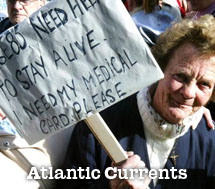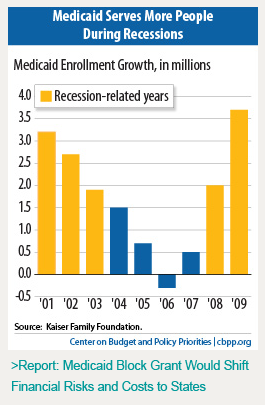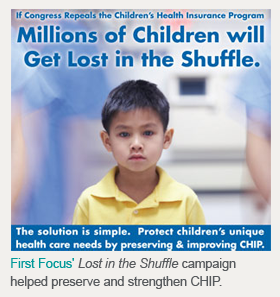Not Just a Numbers Game: Budget Cuts Threaten Those Already Struggling
Resource type: News
Gara LaMarche |
“Oh, I really feel we’ve been led up the garden path…We are the people that worked. We put this country on its feet, and we’re the people that are being hit every which way.”
– Diane, age 81, in Dublin, Ireland
 Across many of the geographies where The Atlantic Philanthropies work, budget cuts are putting disadvantaged and vulnerable people, like Diane, at risk.
Across many of the geographies where The Atlantic Philanthropies work, budget cuts are putting disadvantaged and vulnerable people, like Diane, at risk.
The effect of the global recession is being felt at the national level in the Republic of Ireland, Northern Ireland, Bermuda and the United States, where federal budget cuts are causing even more drastic budget crises at the state level. Markets may be recovering, but human beings continue to suffer as a result of the recession. Across these countries political agendas are taking precedence over the protection of the most disadvantaged and vulnerable.
- The Republic of Ireland is in an incredibly fragile state. Its 2011 budget, coming after a series of austere ones since 2008, and with the prospect of more through 2015, will create serious difficulties for low-income individuals and families and others dependent upon social welfare. Of the 2011 budget, Atlantic grantee Barnardos said, “For families reliant on social welfare, the recent cuts to adult payments and Child Benefit along with the loss of the Christmas bonus have had a significant impact on the household budget. In reality this can mean families making choices between either bringing a child to the doctor or doing grocery shopping.”
- Northern Ireland is bracing for the impact of cuts from both the UK Government and the locally elected Assembly. UK-wide changes in welfare benefits which began last October may result in the loss of £500 million in Northern Ireland over the next four years. Older adults, people with disabilities and families with children will suffer disproportionally from these changes. Already youth unemployment stands at 20 per cent and the jobs cuts that will flow from further public expenditure reductions will cause further increases. The Government has just announced its final budget and the next fiscal year will see reductions for the departments covering education, employment and learning, social development, the environment and others while the increase for health is less than inflation.
- Bermuda continues to be very vulnerable economically and socially. The credit crisis and subsequent global economic downturn has seriously affected the country, deteriorating the government’s fiscal health. The recently released national budget cuts $150 million in education, financial assistance and critical nonprofit agencies, hurting many Atlantic grantees.
 In the United States, federal budget cuts are causing financial crises at the state level. Some of the proposed responses to this challenge would put critical social welfare programmes at risk and gut the programmes that support the most vulnerable beneficiaries – including children, older adults and the disabled – in order to make state budgets solvent. For instance, proposals to institute a Medicaid Block Grant or Funding Cap are receiving more attention in the budget debate recently. If passed, these would permit states to cap enrolment or scale back eligibility and coverage. In addition, some Republican governors have asked Congress to repeal the provision of the Affordable Care Act that requires states to maintain their current Medicaid and the State Children’s Health Insurance Program (SCHIP) eligibility standards until 2014. Doing so would increase the number of uninsured among the most vulnerable: low-income kids and parents, seniors and the disabled.Though deficit hawks are dominating the national discourse in the U.S., often aiming at critical safety net programmes like Social Security, a largely jobless recovery is causing prolonged suffering.The need for jobs is incredibly high – the unemployment rate in February was nearly 9 per cent – yet the 2011 federal budget calls for a 45 per cent reduction of the Senior Community Service Employment Program (SCSEP). This would cut the only jobs programme for seniors just when they need it the most. “This job program works,” said Sandra Nathan, Senior Vice President for Economic Security at the National Council on Aging, a U.S. Ageing Programme grantee. “SCSEP not only helps mature workers make the transition from unemployment to self-sufficiency, it also helps them develop new skills that the economy needs. There are workers in our jobs program in North Carolina right now who are getting trained to install solar panels – just the kind of ‘green’ jobs that the President mentioned in his State of the Union address.”
In the United States, federal budget cuts are causing financial crises at the state level. Some of the proposed responses to this challenge would put critical social welfare programmes at risk and gut the programmes that support the most vulnerable beneficiaries – including children, older adults and the disabled – in order to make state budgets solvent. For instance, proposals to institute a Medicaid Block Grant or Funding Cap are receiving more attention in the budget debate recently. If passed, these would permit states to cap enrolment or scale back eligibility and coverage. In addition, some Republican governors have asked Congress to repeal the provision of the Affordable Care Act that requires states to maintain their current Medicaid and the State Children’s Health Insurance Program (SCHIP) eligibility standards until 2014. Doing so would increase the number of uninsured among the most vulnerable: low-income kids and parents, seniors and the disabled.Though deficit hawks are dominating the national discourse in the U.S., often aiming at critical safety net programmes like Social Security, a largely jobless recovery is causing prolonged suffering.The need for jobs is incredibly high – the unemployment rate in February was nearly 9 per cent – yet the 2011 federal budget calls for a 45 per cent reduction of the Senior Community Service Employment Program (SCSEP). This would cut the only jobs programme for seniors just when they need it the most. “This job program works,” said Sandra Nathan, Senior Vice President for Economic Security at the National Council on Aging, a U.S. Ageing Programme grantee. “SCSEP not only helps mature workers make the transition from unemployment to self-sufficiency, it also helps them develop new skills that the economy needs. There are workers in our jobs program in North Carolina right now who are getting trained to install solar panels – just the kind of ‘green’ jobs that the President mentioned in his State of the Union address.”
Our Grantees Work to Protect the Most Vulnerable Groups
In economic times like these, the most important thing a foundation can do is support organisations and advocates working to ensure that the most vulnerable groups – children, older adults, immigrants and the working poor – are not the hardest hit, and working to amplify the voices of those who are hurting the most. Many of our grantees are working to do just that.
In the Republic of Ireland, Ageing grantee Older & Bolder is advocating with and on behalf of older adults who are feeling the pinch of budget cuts. Children & Youth grantees, The Children’s Rights Alliance and Barnardos, are advocating on behalf of the rights of children. Reconciliation & Human Rights grantee, FLAC, has taken a seat on the Government’s Expert Group on Mortgage Arrears and was instrumental in securing a Code of Conduct that affords greater protection to individual consumers struggling with personal debt.
Barnardos’ Stand for Children Campaign.
The Northern Ireland Council for Voluntary Action is taking a comprehensive look at the effect of budget cuts on marginalised and vulnerable people, ranging from budget analysis and recommendations for alternative approaches; monitoring the impact of floated, planned or actual cuts; convening experts; providing training in economic analysis to nonprofit leadership; and communicating the issues to the sector and the public.
In Bermuda, grantees like the Centre on Philanthropy convene nonprofit and advocacy groups to discuss the funding environment, assess capacity needs, and provide training and advice on how to better manage and deploy now-limited resources for maximum impact. Through the research they conduct, commission and disseminate, groups like Youth on the Move keep the government and the most hard-hit communities informed about the impact of budget cuts on unemployment and crime. The Family Centre convenes government agencies and the human service nonprofits to analyse and tackle the roots of social problems, while coordinating and delivering programmatic services.
 In the United States, grantees like the Center on Budget and Policy Priorities keep advocates informed with in-depth analysis of budget proposals and the impact they would have on disadvantaged and vulnerable communities, and grantees, including the Center for American Progress and The Opportunity Agenda, conduct research and communications efforts to protect the rights of the most vulnerable. The National Council on Aging and the Age4Action Network engage older adults in advocacy to defend their rights and benefits. Grantees like First Focus work to make sure that children and families are priority in federal policy and budget decisions, and the Children’s Defense Fund and Georgetown Center for Children and Families are fighting against threats to government- supported children’s health care.
In the United States, grantees like the Center on Budget and Policy Priorities keep advocates informed with in-depth analysis of budget proposals and the impact they would have on disadvantaged and vulnerable communities, and grantees, including the Center for American Progress and The Opportunity Agenda, conduct research and communications efforts to protect the rights of the most vulnerable. The National Council on Aging and the Age4Action Network engage older adults in advocacy to defend their rights and benefits. Grantees like First Focus work to make sure that children and families are priority in federal policy and budget decisions, and the Children’s Defense Fund and Georgetown Center for Children and Families are fighting against threats to government- supported children’s health care.
Atlantic is proud to support grantees in all of these countries that keep people at the centre of critical budget debates, telling the stories that bring home to policymakers and a public understandably anxious about the economic future that this is not simply a numbers game, but one that can have life and death consequences.
